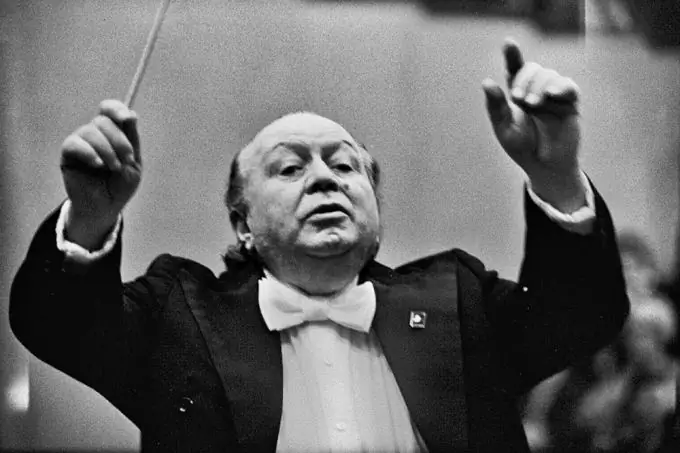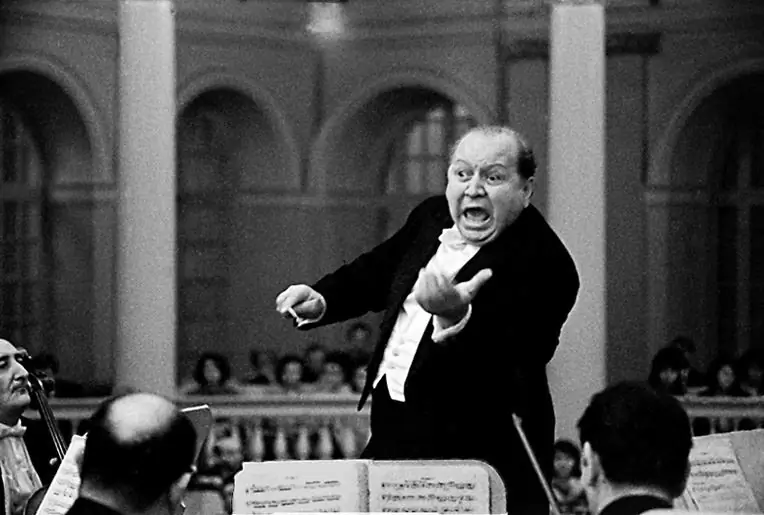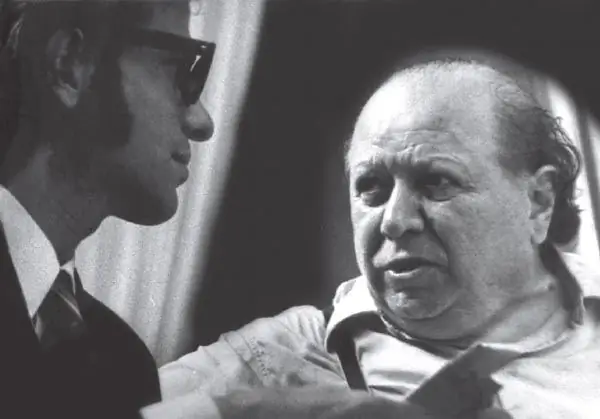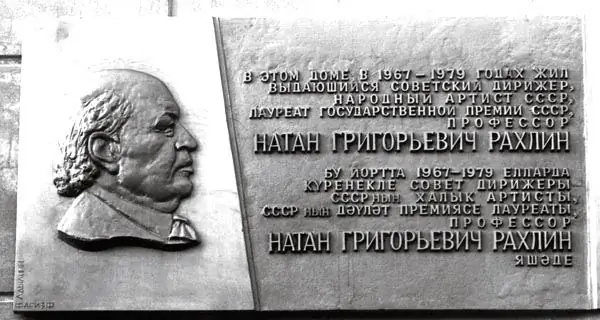- Author Antonio Harrison harrison@cultureoeuvre.com.
- Public 2024-01-09 15:32.
- Last modified 2025-01-22 21:44.
Nathan Rakhlin was called "The Mozart of Conducting". Experts and listeners agreed that he literally commanded the orchestra. Artistry and outstanding conducting skills made Rakhlin a legend among Soviet musicians.

Biography: early years
Natan G. Rakhlin was born on January 10, 1906 in Snovsk, near Chernigov. The future virtuoso appeared in a large Jewish family. My father directed modest ensembles and orchestras, which performed diverse plays, as well as Jewish music.
At an early age, Nathan began to show musical talent. Under the guidance of his father, in a short time he mastered several wind and string instruments.
At the age of seven, Nathan was accepted into a local cinema as a musician. He successfully played at city holidays and weddings.

When Nathan turned 13, the famous division of Kotovsky, who knew his family, stopped in Snovsk. He liked the boy's virtuoso game and offered him to be a bugler in the division. Nathan's parents didn't mind. So Nathan became a trumpeter-bugler in the military band of the Kotovsky division.
Nathan began to take part in all army music competitions and won them without difficulty. Kotovsky already then realized that the boy had a bright musical future. With his submission, Nathan entered the Kiev Conservatory. Despite his young age, he was immediately assigned to the third year.
Natal studied and managed to play in the orchestra of the Higher Military School. He learned the basics of conducting at the Kiev Music and Drama Institute.
Career
In 1935 Nathan moved to Donetsk. By that time, he already had work in the Samara orchestra behind him. In Donetsk, Rakhlin began to lead the regional orchestra.
In 1938 Nathan's first tour in Moscow took place. His performance made a splash. In the same year, he took part in the first All-Union Conducting Competition, where he received a second prize.
In 1941, Rakhlin was entrusted with managing the USSR State Symphony Orchestra. After the war, Nathan returned to Kiev, where he took over at the helm of the State Orchestra of the Ukrainian USSR. In parallel, he began teaching conducting at the local conservatory.
In 1957, Rakhlin moved to the capital, where he began to lead the Moscow Philharmonic Orchestra. Three years later, he returned to Ukraine. During the same period, his tour was scheduled for months in advance. He visited with concerts in all cities of the Union, where there were their own symphony orchestras. All his performances were sold out. The audience appreciated his artistry and fanaticism for music. Nathan never put a music stand in front of him, since he kept all the scores in his head.

In the early 60s, persecution of Jews began in the country. Nathan was removed from a leading position in the Kiev orchestra and was taken away from his dacha in Crimea. Soon he was forced to leave for the province. The eminent conductor settled in Kazan, where he soon created the symphony orchestra of the Tatar ASSR. In a short time, it has become a world-class ensemble. Rakhlin led him until the end of his days.

On June 28, 1979, Rakhlin died in Kazan. His body was transported and buried in Kiev. A memorial plaque hangs on the house where he lived in Kazan.
Personal life
Nathan Rachlin was married. In marriage, a daughter, Eleanor, is born. According to rumors, since 1959 the conductor was in a relationship with Gertrude Leifman, who was 31 years his junior. At that time she was 22 years old. Gertrude became Rachlin's muse. The conductor carefully concealed this relationship on the side from outsiders.






